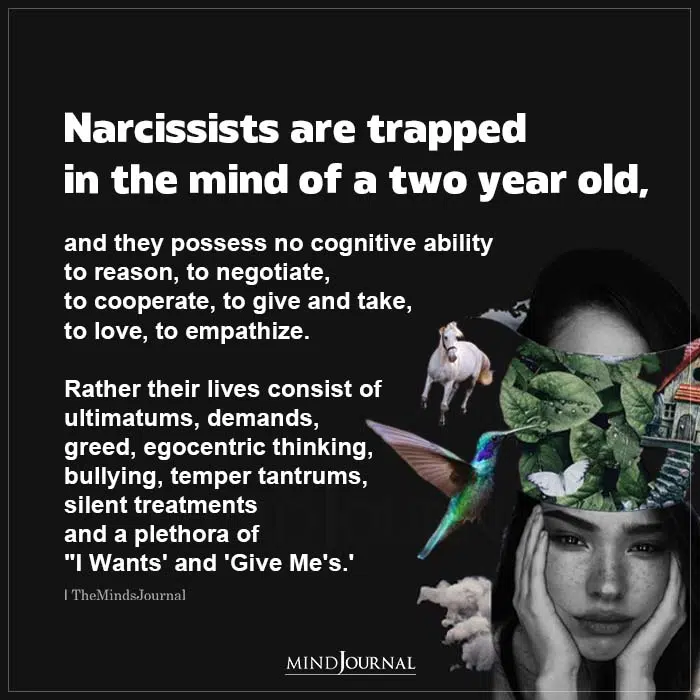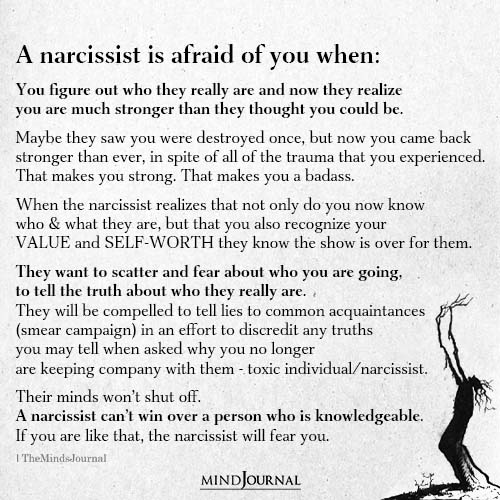Have you ever met someone who seems super helpful and sweet, but it just doesn’t seem genuine? Well, you might be looking at an altruistic narcissist, and this is one of the many signs of an altruistic narcissist.
You might be confused because when we think of narcissists, we usually think of them as selfish and uncaring. But there is another type of narcissist who does good deeds for a different reason – they want attention and praise and adulation.
So, without any further delay, let’s get down to knowing more about the altruistic narcissist and their signs. Let’s start with understanding what is an altruistic narcissist.
Related: Why You Fall For A Narcissist Again And Again
What Is An Altruistic Narcissist?
Imagine someone always lending a hand or donating to charity. Now ask yourself why they’re doing that. If it’s more about showing off than actually caring about the cause or people they’re helping, that’s just one of the signs of an altruistic narcissist. They only do it so they look good or feel better about themselves.
While they may look like they’re doing it all out of genuine care and concern, the altruistic narcissist is really just motivated by the need for validation and appreciation.
They often feel empty and worthless unless there’s something they can do to help others. This often leads them to become co-dependent on the people they’re helping.
Now that we know what is an altruistic narcissist, let’s talk about spotting altruistic narcissists.
7 Signs Of An Altruistic Narcissist
1. They are “excessively” generous.
The altruistic narcissist will often give gifts with the sole purpose of holding power over other people. Their “kindness” isn’t really kindness at all, instead, every act has been planned out in order to put someone in their debt.
While they may appear genuinely helpful, their intentions aren’t always so pure after all. They are hoping that by showering those around them with unnecessary gifts or by going out of their way to help them, when they eventually need something, they can expect others to return the favour, no questions asked.

2. Their private and public behaviour are starkly different.
I’m sure you know people who are known for all of their charity work, but in private have nothing but mean things to say about those they “help.” This difference between how they act publicly vs. privately is one of the biggest signs of an altruistic narcissist.
In front of other people, the altruistic narcissist will make themselves seem like the most generous person in the world. And some might even believe it! But that’s just it — no one actually knows what goes on behind closed doors.
And I’ll save you the surprise… it’s nothing good.
3. Their public displays of kindness is something else altogether.
Spotting altruistic narcissists are easy – look for the person who is trying very hard to convince people that they are the kindest and most compassionate people. They love being in the spotlight, and are willing to do anything for that.
However, they don’t genuinely care about giving back. What they truly care about is the admiration and praise that comes with it. The good deeds they do and their charitable efforts are usually well-documented and highly publicized, often through social media or other platforms where they can gain attention.
They use their showy acts of kindness as tools to feed their ego and maintain their self-perceived superior status.
Related: Why a Narcissist Does Not Seem Like a Narcissist at First
4. They crave adulation all the time.
What is an altruistic narcissist? The altruistic narcissist craves praise and admiration from others. Their acts of kindness are often a means to this end, a strategic move to garner applause and adulation.
Despite how nice they may seem, this constant need for adulation is so strong that it dictates every action and decision they make. If doing something doesn’t bring them public recognition, you won’t find them doing it.
When their efforts aren’t met with the expected level of praise, they’ll feel slighted or unappreciated. And sometimes, withdraw their support or generosity altogether.
5. They think and act like they’re superior to everyone else.
Spotting altruistic narcissists? Look out for this sign!
One of the glaring signs of an altruistic narcissist is that they believe they’re superior to others because of all the good things they do. Their inflated sense of self often makes them act as if they’re more kind-hearted, more ethical, and just better people overall.
This mindset causes them to look down on those who aren’t as active in doing good or maybe help in different ways. This sort of judgmental and patronizing behaviour makes it seem like they find others unworthy or inferior for not living up to their altruism standards.

6. They have an extremely fragile ego.
Altruistic narcissists have a very fragile sense of self that depends heavily on external validation. They feed off praise and recognition for their good deeds and when they don’t get the amount of appreciation they expected, it deeply hurts them. So much so that it can make them angry even.
Their self-worth is very unstable and fragile, and they need validation from others to feel good about themselves. Without it, insecurity and feelings of worthlessness sink in very quickly.
Related: How to Deal with a “Kind” Narcissist
7. They can be very manipulative and exploitative.
One of the subtle signs of an altruistic narcissist is that they use their “kindness” as a tool to control others. Every time they do something nice for someone there’s an expectation of receiving something back in return — if you don’t want anything from them now then you’ll have to return the favour later.
And when that time comes where you need something from them, hell will rain down upon you if you don’t immediately repay what you owe. It’s almost like their generosity has a hidden cost attached to it since this treating “others” thing is really just a business transaction where favour after favour must be given until one day the debt is repaid.
Now that you know how twisted the altruistic narcissist can be, let’s talk about how to deal with an altruistic narcissist.
How To Deal With An Altruistic Narcissist?
1. Try to understand how they work and their real motives.
The only reason they want to help you is so that they can get something back from you later or so that they can take advantage of you. So try to always be cautious and aware of their motives before accepting any kind of help from them.
2. Keep your communication with them limited, and to the point.
If you already know everything about spotting altruistic narcissists, then the next step is to limit your communication with them.
This will help you prevent any misunderstandings as well as avoid getting into manipulative conversations where they may try to drag you in by sparking a discussion about their feelings or needs (which they don’t have, by the way).
3. Try to avoid them as much as you can.
One of the best things you can do if you are thinking about how to deal with an altruistic narcissist is this!
They might be very charming and persuasive but you really need to stay away from them. Because no matter what, if an altruistic narcissist is in your life, they will come for you eventually. Always remember that such people are experts when it comes to manipulating others.
Related: The 6 Types of Narcissists: How To Spot And Cope With Each Of Them
4. Be confident about yourself.
Confidence is key, especially when you’re dealing with the altruistic narcissist. If you don’t have faith in yourself, it becomes that much easier for them to manipulate you. They will use their power to control and manipulate you into doing what they want.
You must stand up for yourself and believe in your own abilities. When doing so, you’ll also be able to see past their façade and realize that they aren’t as great or kind as they claim to be.

5. Never ever give them the satisfaction of your reaction.
How to deal with an altruistic narcissist? Never give them the satisfaction of getting what they want from you. If they see that they’re able to get under your skin, then that only motivates them to continue doing what they’re doing.
So make sure to ignore them and not let them get to you in any way possible. This is the best way of dealing with them, because although it may seem like they’re trying to help, deep down inside all they care about is their own needs.
Takeaway
Altruistic narcissism is a complex subject. It’s not simply about being good or bad—-it’s about understanding motives behind actions. Being able to identify these signs of an altruistic narcissist can help you better understand them, and take steps to protect yourself from them.
Related: The Victim’s Cloak: How The 3 Kinds Of Narcissists Wield It
Have you noticed any of these signs of an altruistic narcissist in anyone close to you? Do let us know your thoughts in the comments down below!









Leave a Reply
You must be logged in to post a comment.